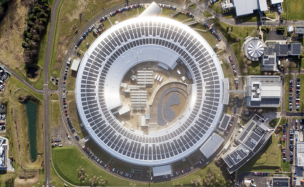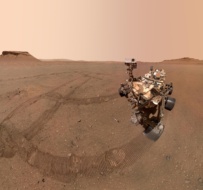The Biden administration has requested $25.4B for NASA in its fiscal 2025 budget, which prioritizes investment in Earth science, climate research, and the return to the Moon.
The request is only about $500M more than Congress appropriated for the agency in fiscal 2024, when it passed the annual appropriations bill on Friday.
The highlights: The NASA budget requested the following high-level funding:
- $7.8B for Artemis, including funding for a small lunar rover and large cargo lander
- $2.4B for Earth Science, including $150M for the next-generation Landsat birds
- $5.2B space science, including $2.7B in planetary science
The budget also funds operation of the ISS through 2030, procurement of a vehicle to deorbit the station, and continued support for commercial space stations.
“The Budget gradually reduces research and other activities on board the ISS in order to provide the funding necessary for the de-orbit vehicle and commercial space stations,” according to budget documents.
What’s next: NASA chief Bill Nelson will provide more details at his annual State of NASA address this afternoon.




